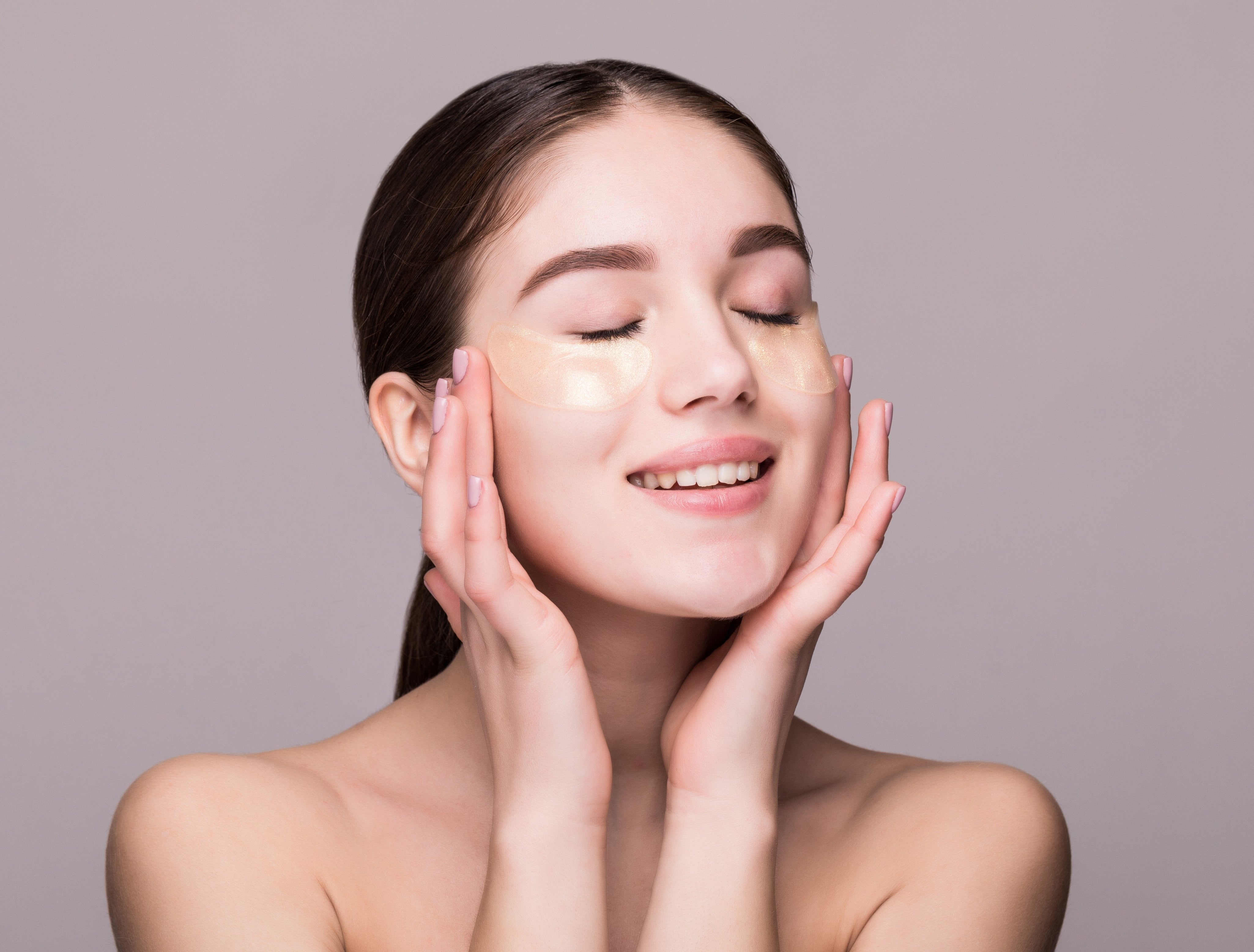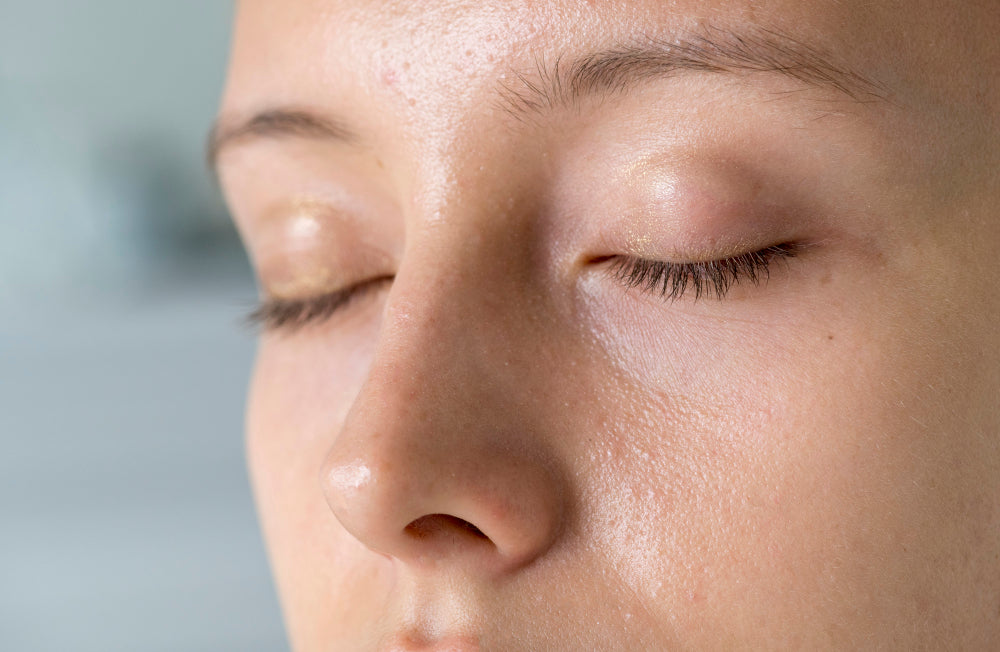Mastering Your Ideal Skin Care Routine

Creating a personalised skincare routine might initially feel daunting, yet by breaking it down into essential elements and steps, it can become an enriching and almost intuitive experience. In this guide, we invite you to embark on a journey towards mastering the art of skincare, where we will meticulously explore its components and steps, including the elegant layering of products and a thoughtfully curated care routine. Additionally, we'll cover common skincare pitfalls to avoid, ensuring your skincare routine is practical and successful.
Basic Components of a Skin Care Routine
In the pursuit of radiant and healthy skin, understanding the fundamental components of an effective skincare routine is paramount. Each step is distinctive in nurturing the skin, creating a harmonious balance that caters to its unique needs.
Cleansing
Cleansing is the first step to any skincare routine. It helps remove dirt, oil, and makeup from your skin, paving the way for other products to penetrate effectively.
Double-Cleansing
An increasingly popular technique within cleansing is the double-cleansing method, which entails two systematic steps. The initial phase typically involves an oil-based cleanser to dissolve makeup and excess sebum, ensuring that the skin is thoroughly cleansed without stripping it of its natural moisture. Following this, a water-based cleanser further purifies the skin, addressing any lingering impurities. This dual approach not only elevates the cleansing experience but also prepares the skin optimally for subsequent treatments, allowing active ingredients to perform at their best. Embracing the double-cleansing method is a sophisticated step towards achieving a luminous complexion, catering to the holistic needs of your skin.


Moisturising
Moisturising is essential for keeping your skin hydrated and maintaining its natural barrier against environmental stressors. When your skin is well-hydrated, it not only looks healthier but also feels more comfortable and resilient. Choosing a moisturiser that is specifically suited to your skin type—whether oily, dry, combination, or sensitive—can make all the difference in achieving the best results.
A good moisturiser should contain ingredients that nourish your skin, such as hyaluronic acid, glycerin, or natural oils, while also providing protection against moisture loss. By incorporating the right moisturiser into your daily skincare routine, you can help ensure your skin remains supple, radiant, and well-balanced.

Protection (SPF)
If there's one non-negotiable step in your skincare routine, it has to be SPF. Never underestimate the importance of sun protection! Applying a broad-spectrum sunscreen every day is crucial for safeguarding your skin from harmful UV rays. These rays can lead to a range of skin issues, including sunburn, skin cancer, and premature aging, such as wrinkles and fine lines.
It's essential to choose a sunscreen that offers broad-spectrum protection, meaning it shields against both UVA and UVB rays. Make sure to apply it generously to all exposed areas of your skin, even on cloudy days or when you're indoors, as UV rays can penetrate windows. For optimal results, reapply every two hours, or more frequently if you’re swimming or sweating. By incorporating SPF into your daily routine, you not only protect your skin’s health but also help maintain its youthful appearance for years to come. Apply SPF as rigorously as possible and your future self will thank you!

By integrating these essential skincare steps into your routine, you set yourself on the path to achieving your skincare goals, ensuring that each action is intentional and tailored to your skin's unique needs.
Nice to Have Regimens or Supplementary Steps
As we delve deeper into the realm of skincare, it becomes apparent that while the foundational components serve as the backbone of any regimen, there exist supplementary steps that can enhance and elevate your routine. These additional practices and treatments are not merely indulgent; they address specific skin concerns- boosting the skin in profound ways. These complementary steps are designed to enhance your skin’s condition and overall health.
Gentle Exfoliation
Incorporating a gentle exfoliation step into your skincare routine is essential for removing dead skin cells. This process not only promotes a brighter complexion but also enhances the overall smoothness of your skin texture. Aim to exfoliate 1-2 times a week using a mild scrub or a chemical exfoliant that suits your skin type.

Targeted Serums
Elevate your skincare game by adding targeted serums that cater to your specific concerns, whether it’s acne, fine lines, or uneven skin tone. These potent formulations can deeply penetrate the skin to provide visible results. Choose serums rich in active ingredients like retinol for aging or salicylic acid for acne to effectively address your unique skin needs.

Hydrating Masks
Incorporate hydrating masks into your routine regularly to replenish moisture levels and revive tired skin. Look for masks with ingredients like hyaluronic acid, aloe vera, or glycerin, which are known for their hydrating properties. Using a hydrating mask once or twice a week can leave your skin feeling refreshed and glowing.

Importance of A Tailored Skincare Routine
In a world where skincare is often one-size-fits-all, the importance of a personalized regimen is crucial. Tailoring your routine to your skin's specific needs enhances its appearance and nurtures its health. By considering your skin type, environment, and lifestyle, you can create a holistic routine that aligns with your skin's natural rhythms.
Related: Purposeful skincare... why now more than ever...
Is There A Proper Way to Layer Skincare Products?
Yes, there is. The principle in proper layering of skincare products is based on the absorption and efficacy of the products. Generally, products are applied from the lightest to the heaviest texture, allowing each layer to be effectively absorbed into the skin. This order ensures that active ingredients penetrate properly, maximising their benefits while preventing heavier products from blocking lighter ones. Here’s a common sequence of skincare steps:
Morning Routine
- Cleanser
- Toner (if used)
- Serum
- Moisturiser
- Sunscreen
Evening Routine
- Cleanser
- Exfoliant (1-2 times a week)
- Serum
- Moisturiser
- Sheet mask (as needed)
7 Common Skincare Mistakes to Avoid
1.) Skipping sunscreen, even on cloudy days
Many people believe that sunscreen is only necessary on sunny days, but up to 80% of UV rays can penetrate through clouds. Skipping sunscreen can lead to skin damage, premature aging, and an increased risk of skin cancer. It's essential to apply broad-spectrum SPF every day, regardless of the weather, to protect your skin.
2.) Over-exfoliating
Exfoliation is important for removing dead skin cells and promoting a healthy glow, but overdoing it can strip the skin of its natural oils, leading to irritation, redness, and sensitivity. Aim to exfoliate only 1-3 times a week, depending on your skin type, and choose gentle exfoliants to avoid damaging your skin barrier.
3.) Not moisturizing enough
Moisturizing is crucial for maintaining skin hydration and elasticity. Neglecting to moisturize can result in dry, flaky skin and may even trigger the skin to produce excess oil as a defense mechanism. It's important to find a moisturizer that suits your skin type and incorporate it into your routine, especially after cleansing.
4.) Using the wrong products for your skin type
Every skin type has unique needs, and using products that aren't suited for your specific type can lead to various issues, such as breakouts, dryness, or irritation. It's essential to identify your skin type—whether it's oily, dry, combination, or sensitive—and choose products formulated to address its individual concerns for optimal results.
5.) Neglecting to remove makeup before bed
Going to bed with makeup on can clog pores, leading to breakouts and dull-looking skin. It's important to establish a nightly routine that includes thoroughly removing makeup and cleansing the skin. This allows it to breathe and repair itself overnight, resulting in a healthier complexion.
6.) Popping pimples, which can cause scarring.
Though it may be tempting to pop pimples for immediate relief, doing so can push bacteria deeper into the skin, leading to more inflammation and potential scarring. Instead of popping, it's better to use appropriate treatments and let the blemish heal naturally.
7.) Inconsistent skincare routine, leading to poor results.
A consistent skincare routine is key to achieving and maintaining healthy skin. Inconsistency can lead to a lack of improvement or worsening of skin issues. It’s important to stick to a daily regimen and give products time to work—typically a few weeks—to see real results.
When To Seek Professional Help to Address Your Skin Concerns
If you're facing ongoing skin issues such as severe acne or irritation that simply won't go away, it's highly advisable to consult a dermatologist. Skin specialists can provide personalised advice and treatment options tailored to your specific skin type and concerns. They can help identify the underlying causes of your skin problems and recommend effective solutions, whether it involves topical treatments, medications, or lifestyle changes, ensuring you achieve healthier skin in the long run.
FAQs on Skincare Regimen
Can I use the same skincare products for both day and night?
Yes, you can use the same skincare products for both day and night. However, be mindful of specific ingredients. Products with retinol or alpha hydroxy acids (AHAs) are usually best at night since they can make your skin more sensitive to sunlight. During the day, opt for products with sun protection (SPF) to shield your skin from harmful UV rays.
What should I do if I experience a reaction to a skincare product?
If you notice redness, itching, or swelling, stop using the product immediately. Continuing can worsen the irritation. Monitor the area, and if the reaction persists or intensifies, consult a dermatologist for guidance on suitable alternatives or treatments for your skin type.
How should I store my skincare products?
Store your skincare products in a cool, dry place, away from direct sunlight and humidity. High temperatures and UV exposure can degrade active ingredients. For products with antioxidants or sensitive components, consider refrigerating them for added protection.
How often should I exfoliate my skin?
Exfoliation is essential for healthy skin. Most skin types should exfoliate 1-3 times a week, but if you have sensitive skin, limit it to once a week. Oily or combination skin may benefit from more frequent exfoliation, while dry skin types should be cautious and might prefer less frequent sessions. Always listen to your skin and adjust as needed.
Get Expert Skin Treatment and Advice with Skin to Heart
Experience expert skin treatment and holistic guidance with Skin to Heart, where luxury meets personal care. We invite you to embark on a transformative journey that nurtures not only your skin but your overall well-being. Our commitment to exceptional service fosters a sense of community, ensuring that each visit is not just an appointment but a cherished experience. Join us in embracing the path to radiant skin and holistic wellness, where your unique journey is our priority. Book your consultation with our skin experts today.
- Tags: skincare
0 comments

